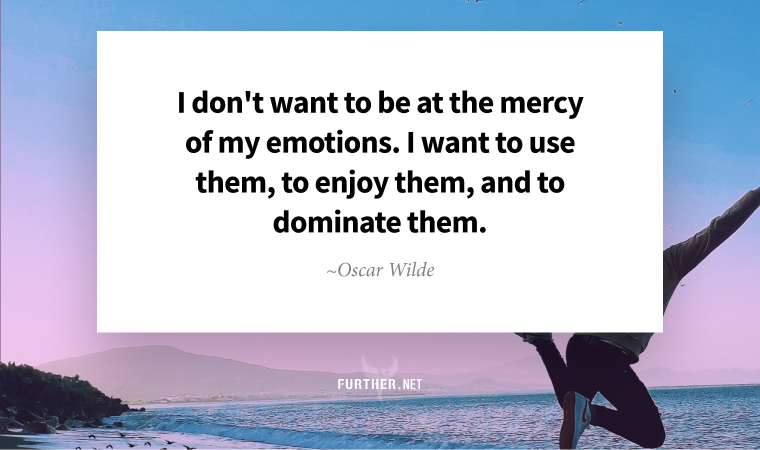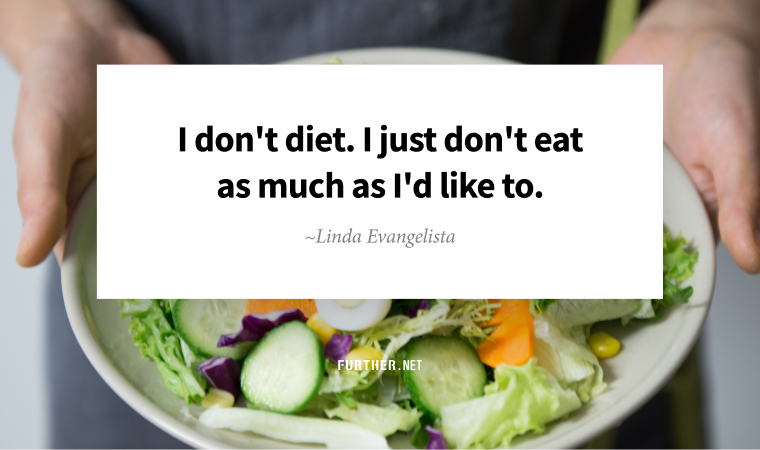
Being controlled by your emotions sucks.
What does that even mean? After all, emotions are going to rise up in you whether you want them to our not. You can’t stop the physical sensation and resulting thoughts from happening.
We’re only controlled by our emotions when we react to them in an unhelpful way. Instead of a reactive mindset that leads to rash responses, we want to shift to a more considered and productive state of mind.
For example, irritability, frustration, and rage are all points on the spectrum of one emotion — anger. Instead of trying to avoid the experience of anger, we can learn to use it in a positive way.
Easier said then done, right? So let’s take a look at some of the prime reasons why emotional regulation is tough.
First of all, we tend to intellectualize our emotions in a way that makes us feel better in the moment, but diminishes our ability to regulate our feelings in the long term. By shifting our actual emotions into concepts, we teach our brain to fear the experience of that emotion, which makes matters worse.
This in turn leads you to judge yourself negatively for how you feel. You’re essentially feeling bad about feeling bad, which compounds the problem in a way that can become overwhelming.
The worst part, and the activity that leads to both of the above, is trying to control your thoughts when an emotion arises. Personally, I try to rationalize away the thoughts I have when I’m frustrated or full-on angry, which instead leads to constant rumination about often trivial matters.
Nick Wignall suggests that you have much more control over your attention than the substance of your thoughts, and this is key. Your thoughts are going to arise on their own just like emotions do, and the only way to stop them is to let them pass as you focus elsewhere:
Trying to control your thoughts often backfires and leads to more unhelpful thoughts which lead to even more intense and dysregulated emotions.
A far better strategy is to simply acknowledge and accept difficult thought patterns like worry or rumination, and then focus on controlling your attention instead.
Nick gives the example of providing a co-worker some valid criticism. Even though you feel it was the right thing to do, you worry that you were too harsh and start to feel anxious and guilty.
As I mentioned above, you might try to rationalize with yourself that what you did was completely appropriate. Instead, the pondering leads to even more anxiety.
Or, you could “put on a podcast, and go for a quick 10-minute walk, then come back and refocus on a different project.” In other words, divert your attention in order to allow the negative thoughts and emotions to pass without further fueling the fire.
You can control your attention, even if it feels difficult. And an intentional diversion can work wonders to avoid fixating on thoughts and negative emotions in the short term.
A more fundamental fix, however, comes from meditation practice. Beyond the countless other benefits, meditation gives you the ability to watch your thoughts and experience the energy of emotion without reacting.
More importantly, you learn to appreciate the transitory nature of thoughts and emotions, and more effortlessly let things simply pass with less angst. If starting (or resuming) a meditation practice is one of your goals for 2022, add one more big reason why it may just change your life for the better.
3 Psychological Reasons You Struggle to Regulate Your Emotions
Keep going-
P.S. Learning how to start a meditation practice (and stick with it) will be one of many challenges we undertake in Well + Wealthy, the upcoming Further community. If you’re new to Further, join us here to find out more.
Fountain of Foods
Incorporating nutrient-dense foods into your diet remains an effective method to support both your lifespan and healthspan. Here are longevity expert and Harvard geneticist David Sinclair’s favorite picks.
These Are A Longevity Expert’s Top 6 Foods To Slow Down Aging
Melatonin It Down
If you’ve tried melatonin and it didn’t work (??♂️), then it’s likely you treated it as a sleeping pill like I did. It doesn’t really work that way for anyone, and this piece lays out a lot of really interesting stuff about how melatonin “prepares” us for sleep rather than puts us to sleep.
Melatonin Isn’t a Sleeping Pill. Here’s How to Use It
Friends Older and New
According to a 2019 global study, the average age at which we meet our best friends is 21. As we get older, the space we used to fill with laughter, gossip, and staying up until the sky grew light can get consumed by more “adult” concerns, such as marriage, procreation, and fully developed careers — and we tend to end up with less of ourselves to give.
Why Making Friends in Midlife Is So Hard
Robo-Riches?
Rob-advisors are gaining in popularity, and tend to be especially well-suited to newer investors who haven’t yet built much wealth. Meanwhile, traditional firms tend to manage money for clients with at least $250,000 to invest.
Robo-Advisors are Growing in Popularity. Can They Really Replace a Human Financial Advisor?
The Skinny on Sustainable Weight Loss
By Trudi Roth
In our lifetimes, we’ve seen countless fad diets: place-related (South Beach, Beverly Hills), founder-driven (Scarsdale, Atkins), restrictive (Zone, Paleo, cleanses), and even a cookie diet. (Not this, this.)
I grew up with a fridge full of Cool Whip and Tab and a yo-yo dieting mom with a genetic predisposition for diabetes. When she developed the disease in her mid-40s, she had an epiphany: she’d drop the fads and instead control it with diet and exercise.
Guess what? It worked — for nearly a decade she staved off taking insulin, and even after that, she only needed a low dose. It turns out the simple act of staying on top of calorie intake and expenditure was the ticket.
However, that doesn’t mean achieving a weight-loss-driving calorie deficit is simple, nor is it about deprivation or obsessively counting calories. Here’s the skinny on sustainable weight loss.
Slow Your Roll
Losing weight isn’t a vanity play, although that’s fine as an initial motivation. It’s a crucial way to improve your healthspan. But this is a lifestyle change, so nutritionists like Cory Ruth, CEO of The Women’s Dietitian, say take your time.
Weight loss needs to be sustainable over time, and it needs to come in the form of healthy, long-term habits. Losing weight at a slower pace can help you keep it off for now and for life.”
Most experts agree that paying attention to calorie information is central to weight loss. A tracker like my Fitness Pal can help you monitor the quality and quantity of your consumption because both aspects matter. (Full disclosure: I use the app’s free version, and I’ve lost around ten pounds over six months.)
When figuring out what a calorie deficit means to you, be sure to factor in your metabolic rate, which considers your weight, height, and gender. And no, you don’t get a midlife metabolism hall pass: research shows it stays pretty consistent throughout our adult life.
Mindful Munching
The minute I started writing down what I ate, my weight loss journey was on. Because knowing what you’re putting into your mouth is key, eat home more often. As Ruth points out:
When we eat out, we inevitably take in more calories, fat, and sugar. Being the one in control of what and how much of an ingredient goes into your food is a foolproof way to eat better for weight management.”
Additionally, she recommends using the “plate method,” where you divide your meal into half low-starch vegetables, a quarter protein, and a small serving of carbs. This also reminds me of the Japanese 80% rule of eating, hara hachi bun me, which is all about mindful eating.
The bottom line: if you want to weigh less, gain consciousness. You’ve got nothing (but lbs.) to lose.
The 3 Best Ways to Achieve Sustainable Weight Loss, Expert Says (Eat This, Not That!)
further: flashback

Jane’s Addiction – Jane Says
Nothing’s Shocking, 1988
Without 1988’s Nothing Shocking and 1989’s Mother’s Milk, would there have been a 1990s alternative rock revolution at all? Ponder that while listening to Jane Says live with Flea from the Red Hot Chili Peppers joining Jane’s Addiction. (YouTube)
further: sharing

Further subscribers earn $MOVE coin by sharing Further with friends to gain access to our exclusive membership community Well + Wealthy (coming early 2022). Get your own free weekly dose of health, wealth, travel, and happiness advice here, and get all the details on our referral program.
Thank you for sharing Further!

